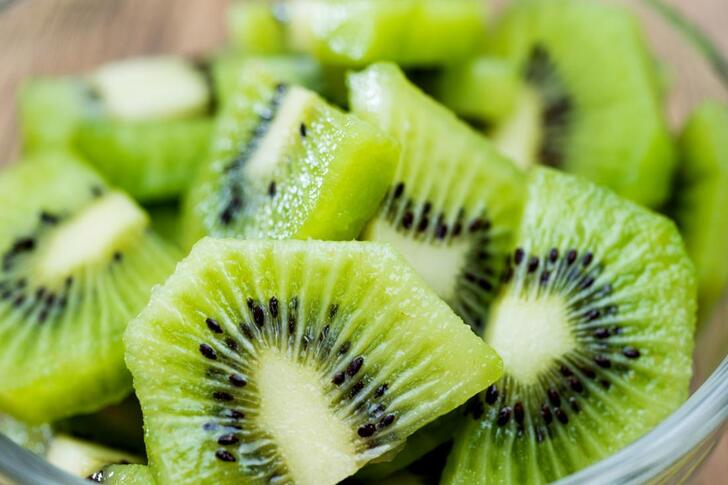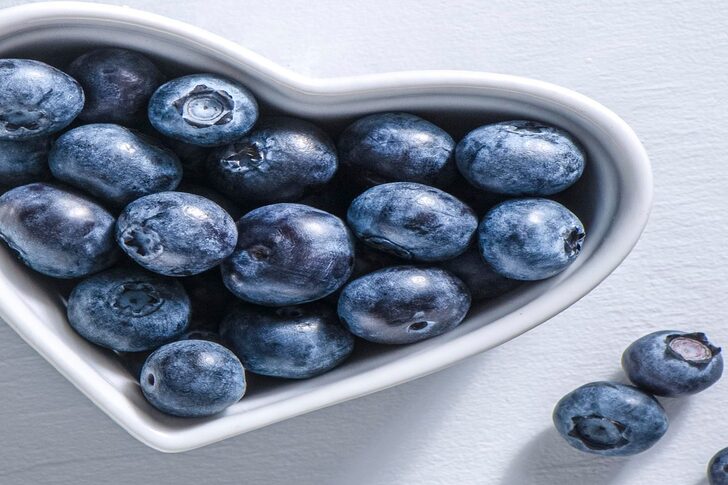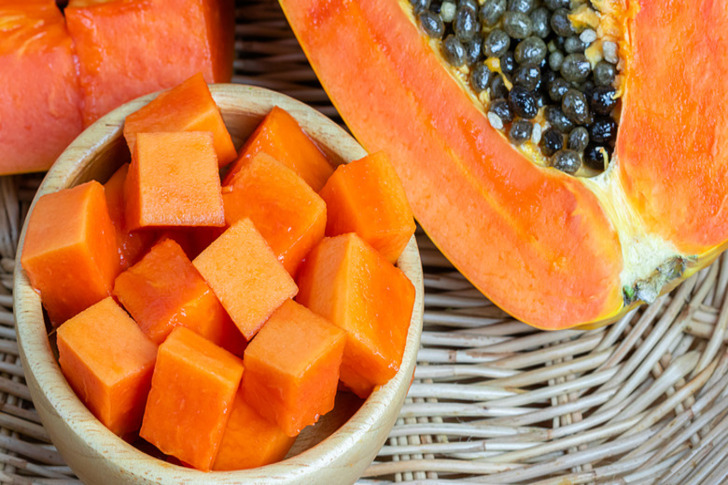Vitamin-Rich Fruits: Boost Your Health
Consuming vitamin-rich fruits is crucial for good health and preventing deficiencies. These delicious fruits are packed with essential nutrients that support overall well-being.
1Kiwifruit: Packed with Vitamin K and C
0 votes

Kiwifruit, also known as kiwi, is a small but nutrient-dense fruit that is exceptionally high in vitamins C and K. A single kiwi can provide more than 70% of the daily recommended intake of vitamin C and about 40% of vitamin K. Vitamin C is essential for immune function, collagen production, and skin health, while vitamin K plays a critical role in blood clotting and bone health. In addition to these vitamins, kiwifruit is a good source of dietary fiber, which aids digestion and promotes gut health. The antioxidants in kiwifruit, including vitamin E and various polyphenols, help reduce oxidative stress and protect the body against chronic diseases. Kiwifruit also contains actinidin, an enzyme that enhances protein digestion. This fruit is not only delicious but also highly beneficial for overall health, making it a great addition to any diet.
0
Do you agree? 0% of people agree with your point of view!
2Oranges: Rich in Vitamin C
0 votes

Oranges are widely known for their high vitamin C content, making them one of the best fruits for boosting the immune system. One medium-sized orange can provide over 100% of the daily recommended intake of vitamin C. This powerful antioxidant helps protect the body against free radicals, supports skin health, and enhances the absorption of iron from plant-based foods. In addition to vitamin C, oranges are a good source of fiber, potassium, and folate. The fiber in oranges aids digestion and helps maintain healthy cholesterol levels, while potassium is essential for heart health and maintaining proper blood pressure. Folate, or vitamin B9, is crucial for cell division and DNA synthesis, making oranges particularly beneficial for pregnant women. The combination of these nutrients makes oranges a versatile and nutritious fruit that can be enjoyed in various forms, including fresh, juiced, or as part of a salad.
0
Do you agree? 0% of people agree with your point of view!
3Blueberries: High in Vitamin C and K
0 votes

Blueberries are not only delicious but also packed with essential vitamins and antioxidants. They are particularly high in vitamins C and K. A cup of blueberries provides a significant amount of vitamin C, which is crucial for immune health, collagen production, and skin repair. Vitamin K plays an essential role in blood clotting and bone health. Blueberries are also rich in antioxidants, including anthocyanins, which give the fruit its deep blue color and have been shown to reduce inflammation and protect against chronic diseases such as heart disease and cancer. The fiber content in blueberries supports digestive health and helps maintain stable blood sugar levels. These small but mighty berries can be enjoyed fresh, frozen, or in various dishes like smoothies, yogurt, and salads, making them a versatile and nutritious addition to your diet.
0
Do you agree? 0% of people agree with your point of view!
4Strawberries: High in Vitamin C and Manganese
0 votes

Strawberries are not only tasty but also packed with essential vitamins and minerals. They are particularly high in vitamin C, with one cup of strawberries providing more than 100% of the daily recommended intake. Vitamin C is crucial for immune health, skin repair, and the synthesis of collagen. Strawberries are also an excellent source of manganese, a mineral that supports bone health, metabolism, and the antioxidant defense system. In addition to these nutrients, strawberries contain a variety of antioxidants, including anthocyanins, which give the fruit its vibrant red color and have been shown to reduce inflammation and lower the risk of heart disease. The fiber content in strawberries helps regulate digestion and maintain healthy blood sugar levels. These nutrient-rich berries can be enjoyed fresh, in smoothies, or as a topping for yogurt and cereal, making them a versatile and healthy choice.
0
Do you agree? 0% of people agree with your point of view!
5Papayas: Rich in Vitamin C and A
0 votes

Papayas are tropical fruits that are incredibly rich in vitamins C and A. One small papaya can provide more than double the daily recommended intake of vitamin C, which is essential for immune function, skin health, and the absorption of iron from plant-based foods. Vitamin A, in the form of beta-carotene, supports vision, immune health, and skin integrity. Papayas also contain folate (B9), which is important for cell division and DNA synthesis, making it especially beneficial for pregnant women. Additionally, papayas are a good source of fiber, which aids in digestion and helps maintain a healthy gut. The enzyme papain found in papayas assists in protein digestion and has anti-inflammatory properties. This nutrient-rich fruit can be enjoyed fresh, in smoothies, or as part of a fruit salad, providing a delicious and health-boosting addition to any diet.
0
Do you agree? 0% of people agree with your point of view!
6Avocados: Loaded with Vitamin E and B Vitamins
0 votes

Avocados are unique among fruits because they are high in healthy fats and contain a wide range of essential vitamins and minerals. They are particularly rich in vitamin E, which acts as a powerful antioxidant, protecting cells from damage caused by free radicals. Vitamin E also supports immune function and skin health. Additionally, avocados are a good source of B vitamins, including B5 (pantothenic acid), B6 (pyridoxine), and folate (B9). These vitamins play vital roles in energy metabolism, brain function, and the production of red blood cells. The healthy monounsaturated fats in avocados help reduce bad cholesterol levels, lowering the risk of heart disease. Avocados also provide potassium, which is crucial for maintaining healthy blood pressure levels. Their creamy texture and mild flavor make avocados a versatile ingredient that can be added to salads, sandwiches, or smoothies, enhancing both the nutritional value and taste of meals.
0
Do you agree? 0% of people agree with your point of view!







Recent Comments